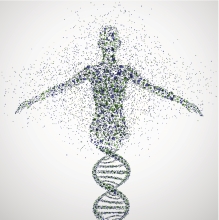By Shawn Hayward, Montreal Neurological Institute and Hospital
Discovery will aid development of treatments for this debilitating disease
Scientists at the Montreal Neurological Institute and Hospital (MNI) have identified novel gene mutations that cause hereditary spastic paraplegia (HSP), a step forward in efforts to treat this debilitating disease.














